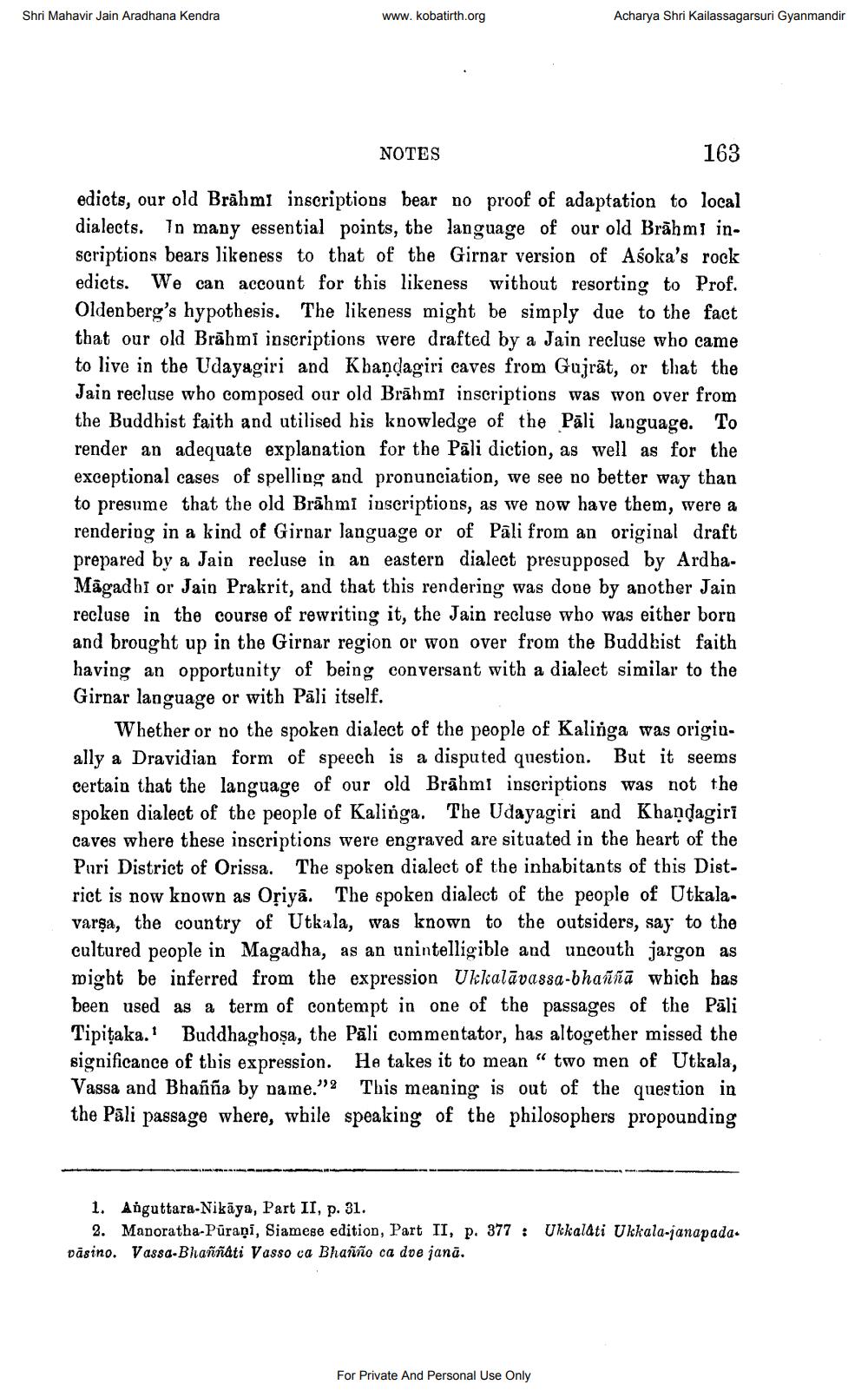________________
Shri Mahavir Jain Aradhana Kendra
www.kobatirth.org
Acharya Shri Kailassagarsuri Gyanmandir
NOTES
163
edicts, our old Brahmi inscriptions bear no proof of adaptation to local dialects. In many essential points, the language of our old Brāhmı inscriptions bears likeness to that of the Girnar version of Asoka's rock edicts. We can account for this likeness without resorting to Prof. Oldenberg's hypothesis. The likeness might be simply due to the fact that our old Brāhmi inscriptions were drafted by a Jain recluse who came to live in the Udayagiri and K bandagiri caves from Gujrāt, or that the Jain recluse who composed our old Brāhmi inscriptions was won over from the Buddhist faith and utilised his knowledge of the Pāli language. To render an adequate explanation for the Pāli diction, as well as for the exceptional cases of spelling and pronunciation, we see no better way than to presume that the old Brāhmi inscriptions, as we now have them, were a rendering in a kind of Girnar language or of Pali from an original draft prepared by a Jain recluse in an eastern dialect presupposed by ArdhaMāgadhi or Jain Prakrit, and that this rendering was done by another Jain recluse in the course of rewriting it, the Jain recluse who was either born and brought up in the Girnar region or won over from the Buddhist faith having an opportunity of being conversant with a dialect similar to the Girnar language or with Pāli itself.
Whether or no the spoken dialect of the people of Kalinga was originally a Dravidian form of speech is a disputed question. But it seems certain that the language of our old Brāhmi inscriptions was not the spoken dialect of the people of Kalinga. The Udayagiri and Khandagiri caves where these inscriptions were engraved are situated in the heart of the Puri District of Orissa. The spoken dialect of the inhabitants of this District is now known as Oriya. The spoken dialect of the people of Utkala. varşa, the country of Utkala, was known to the outsiders, say to the cultured people in Magadha, as an unintelligible and uncouth jargon as might be inferred from the expression Ukkalāvassa-bhaññā which has been used as a term of contempt in one of the passages of the Pāli Tipitaka. Buddhaghosa, the Pāli commentator, has altogether missed the significance of this expression. He takes it to mean “two men of Utkala, Vassa and Bhañña by name."2 This meaning is out of the question in the Pāli passage where, while speaking of the philosophers propounding
1. Aiguttara-Nikaya, Part II, p. 31.
2. Manoratha-Pūraại, Siamese edition, Part II, p. 377: Ukkalati Ukkala-janapada. väsino. Vassa-Bhaññati Vasso ca Bhañño ca dve janā.
For Private And Personal Use Only




